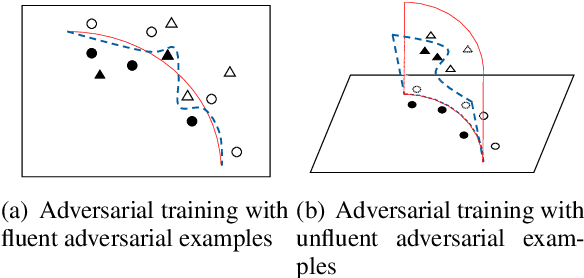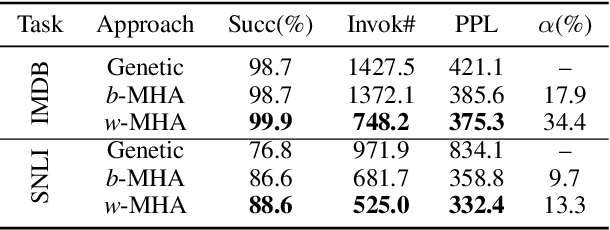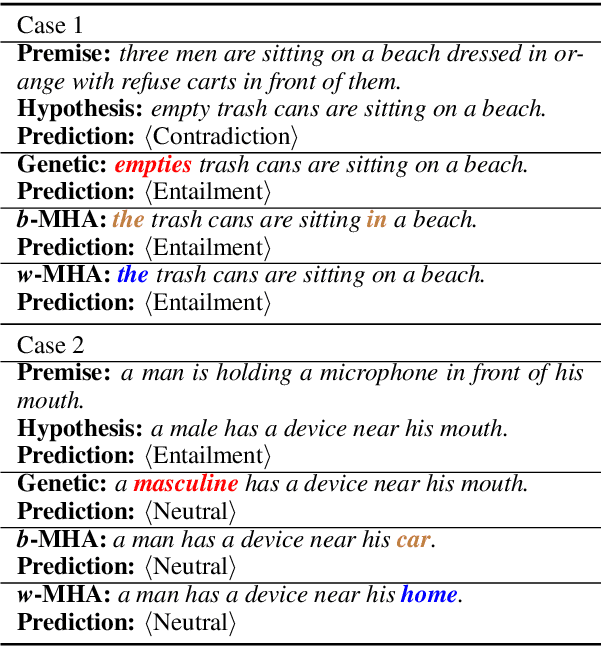Generating Fluent Adversarial Examples for Natural Languages
Paper and Code
Jul 13, 2020



Efficiently building an adversarial attacker for natural language processing (NLP) tasks is a real challenge. Firstly, as the sentence space is discrete, it is difficult to make small perturbations along the direction of gradients. Secondly, the fluency of the generated examples cannot be guaranteed. In this paper, we propose MHA, which addresses both problems by performing Metropolis-Hastings sampling, whose proposal is designed with the guidance of gradients. Experiments on IMDB and SNLI show that our proposed MHA outperforms the baseline model on attacking capability. Adversarial training with MAH also leads to better robustness and performance.
* Accepted by ACL 2019
 Add to Chrome
Add to Chrome Add to Firefox
Add to Firefox Add to Edge
Add to Edge